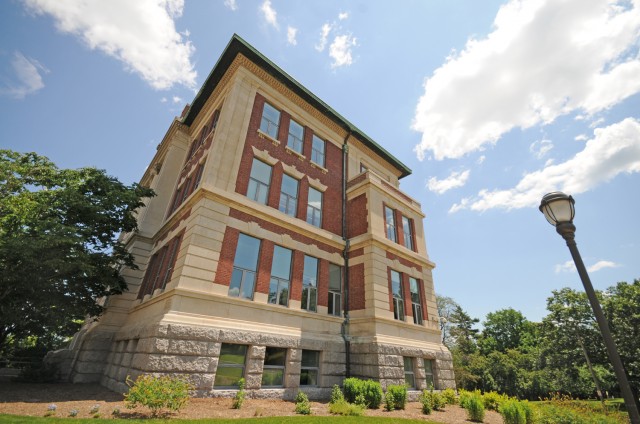Wes Students Share Civic Engagement Experiences

Sharing music. Teaching and advocating for sexual health and justice. Protecting the environment. Tutoring children. Wesleyan students are known for incorporating their own personal passions into work benefitting the wider community.
A group of deeply involved students shared their civic engagement experiences at the latest Virtual WESeminar held on March 29. The conversation was moderated by Abigail Maymi ’22, Jewett Center for Community Partnerships Civic Engagement Fellow. Speakers included Annika Shiffer-Delegard ’23, Wesleyan Reproductive Advocacy and Legislation (WRAL); Blythe Guecia ’23, Adolescent Sexual Health Awareness (ASHA); Sam Multer ’23, Traverse Square After School Program; Imogen Frazier ’25, Food Rescue; Sarah Bank ’23, WESU Radio; and Lily Krug ’24, Sunrise.
They spoke of the challenges and the benefits of their activities and how the practical skills they are learning dovetails with their academic work. “We are always troubleshooting little things that arise all the time. It taught me how to think on my feet, face each challenge, and strategize ways to deal with it,” Bank said, speaking about her work handling the variety of technical and fundraising challenges found at a local non-profit radio station.
Wesleyan Reproductive Advocacy and Legislation is a relatively new organization on campus, Shiffer-Delegard said, and it took them some time to find their footing. “We are still figuring out our role in the community, but there are a lot of things we do. We’ve hosted testimony workshops and we’ve talked a lot about abortion stigma, legislation. We’ve also done some fundraising for abortion clinics … we wear our many hats with pride,” she said.
Guecia’s group, ASHA, has prepared a sexual education curriculum that is currently being taught in four local schools to over 300 students each semester. “It covers materials like consent, contraception, STDs, bystander interventions, power dynamics, pleasure, and navigating relationships,” she said.
Krug and her group, Sunrise, has worked with state legislators to craft legislation, planned advocacy days, and lobbied climate leaders. “We’ve also been working on the sustainability strategic plan for the university. It’s been in process for a while. We helped write parts of it three years ago and its finally been approved by all the difference offices that it needs to and it’s in the implementation process,” Krug said.
Multer believes what’s special about the Traverse Square program is that it is an instance where Wesleyan students actively go out into the community. “All of the kids we tutor live in (Traverse Square). We give them a snack, help them with whatever homework they have and do activities with them … We walk them home at the end of the day. It’s really about the one-to-one connection,” Multer said.
Frazier, part of the Food Rescue program, helps to collect Wesleyan’s leftover food and brings it to a local shelter for unhoused individuals. “It’s an amazing way for students to get involved with the Middletown community and help make our campus more sustainable,” Frazier said.
“As you can see, our students are doing a lot in the community,” Maymi said.
For some students, work in the respective programs helped some of them clarify future career plans. For example, Multer’s work at Traverse Square—all the joys and chaos of working with small children—has made him realize that he would like to become an elementary school teacher. Bank believes in independent radio’s mission to give a platform to new music and thoughtful public programming.
For all the participants, though, regardless of career plans, feel that giving back is an intrinsic part of the Wesleyan experience. “A lot of us are doing this because it is something that we really care about. As a result, it makes us better people to be able to work in communities … it makes you more empathetic, more situationally understanding, and more aware,” Shiffer-Delegard said.

